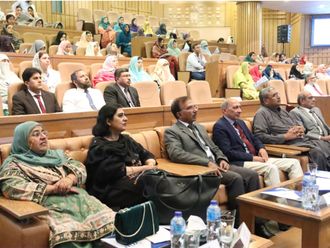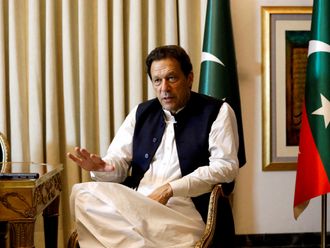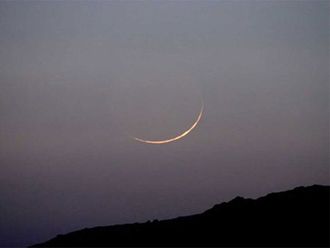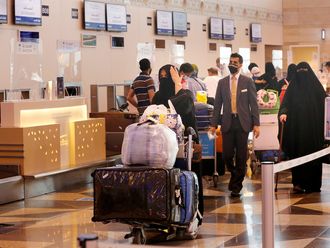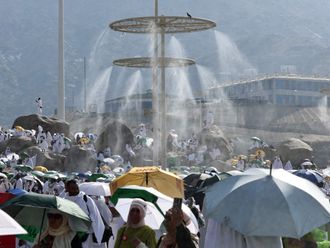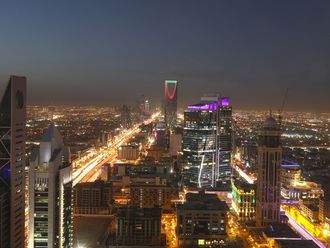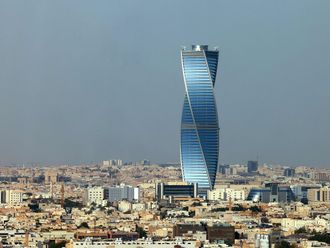ISLAMABAD: Pakistan’s foreign ministry says it has called its top diplomat in India back home for consultations after allegations of harassment of Pakistani diplomatic staff in New Delhi.
Ministry spokesman Mohammad Faisal says the decision was taken after Pakistani officials and their families in New Delhi reported maltreatment, such as being chased by motorcyclists who wanted to photograph them.
Islamabad also summoned an Indian diplomat in Pakistan in protest. India hasn’t commented on the allegations.
Faisal said on Thursday that the envoy, Sohail Mahmood, is expected to return this week.
Speaking at his weekly press briefing, Foreign Office spokesperson Faisal said they will hold consultations with the High Commissioner over “recent incidents of harassing of their diplomats”.
Faisal alleged that diplomats of the Pakistani High Commission had been “harassed and intimidated” and that “vehicles transporting their children to schools had been stopped, the gas supply to the embassy had been cut and the staff had been threatened in recent weeks in New Delhi”.
The Ministry of Foreign Affairs claimed that its Deputy High Commissioner’s car was chased and his driver was abused by a group of men in the Indian capital last week.
“The total apathy and failure of the Indian government to put a halt to these despicable incidents, sparing not even young children, indicates both a lack of capacity to protect foreign diplomats posted in India or a more reprehensible, complicit unwillingness to do so,” Faisal said.
He claimed that the Indian government had not taken measures to safeguard Pakistani diplomats and their families in India, adding that Islamabad had lodged repeated protests over the matter with the Indian High Commission in Pakistan as well as India’s External Affairs Ministry along with photos of individuals accused of harassing its diplomats.
“Under the Vienna Convention, the safety and the security of Pakistani diplomats and their families is the responsibility of the Indian government,” said Faisal.
Responding to complaints by Islamabad, New Delhi assured last week that “India makes all efforts to provide a safe and secure environment for diplomats to work in”.
It added the Indian officials had also faced “harassment” last year in Pakistan but they chose to deal with it through “quiet and persistent diplomacy”.
India on Thursday downplayed as “normal and routine” Pakistan’s decision to call back its envoy.
“It is pretty normal for an ambassador or a high commissioner in any country — for example the resident ambassadors and high commissioners who are in India — to go back to their capital to hold consultations with the foreign office,” External Affairs Ministry spokesperson Raveesh Kumar said here.
“This is pretty normal and pretty routine also in nature,” Kumar said. “We, of course, have no comments to offer as to why the Pakistani High Commissioner has gone back.”
Asked what steps New Delhi took following Pakistani protests, Kumar said: “We do not want to respond to these issues through the media but through established diplomatic channels. At this stage what I can share with you is that we are looking into the issues which have been raised by their side.”
He also said that the Indian High Commission in Pakistan was facing “a litany of issues” which have not been resolved for several months.
“We raised these issues in good faith through diplomatic channels and not through the media.
“We have asked for immediate resolution of these issues faced by our High Commission in Islamabad so that the safety and security of the diplomatic mission and our diplomatic and consular officials is assured.
“We would like our mission to function normally without any obstruction or harassment in keeping with the Vienna Convention on Diplomatic Relations 1961.”
Stating that New Delhi won’t give details of issues taken up with Islamabad, Kumar said: “I think it is very clear that it is something that should be taken up through the established diplomatic channels and not to be published in the media for wider dissemination.”



